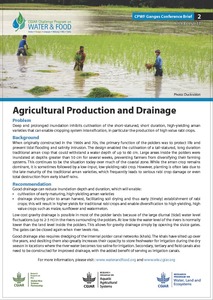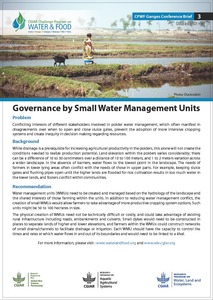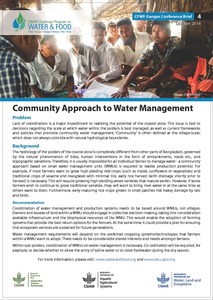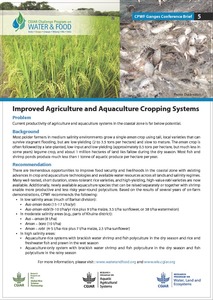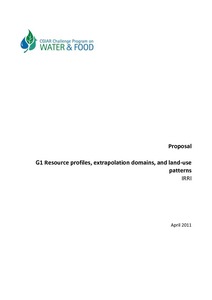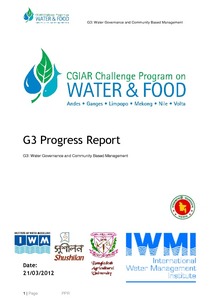Ordenación de tierras
AGROVOC URI:
Future scenarios as an instrument for forest management: manual for training facilitators of future scenarios
The purpose of this manual is to help trainers in future scenario better facilitate training workshops for field officers such as forestry managers, extension officers and researchers who are keen to facilitate future scenarios in their forest management projects. Future scenarios are a diverse and flexible set of methods that can be used to help forest user groups and decision makers define clear unified objectives, identify opportunities or obstacles in the path to their management goals, or prepare strategies and action plans for alternate future situations.
Formation and recovery of secondary forests in India: a particular reference to western Ghats in South India
This paper analyses the underlying causes of secondary forest formation and recovery in India, particularly the Western Ghats region of south India, from precolonial times to the present. In the pre colonial period, hunter gatherers, shifting cultivators and settled cultivators were the dominant users of forest land, with some limited timber felling by local chieftains and kings. There was limited secondary forest formation following extractive activities by the communities and the State.
Ganges Coastal Zone Issue Brief 2: Agricultural Production and Drainage
Ganges Coastal Zone Issue Brief 4: Community Approach to Water Management
G1 Resource profiles, extrapolation domains, and land-use patterns
The Ganges Basin Development Challenge (BDC) research program will focus on brackish-water coastal zones in the Ganges Basin, where agricultural lands have a maximum salinity greater than 5 ppt (parts per thousand) in the dry season (salinity is lower in the wet season). The BDC vision of success requires innovations in water governance, improved availability of dry-season water, improved practices for managing salt-affected lands, and intensification and diversification of farm systems.
G3 2012 Progress Report: Water Governance and Community Based Management
The Ganges Basin Development Challenge (GBDC) commissioned by the CPWF, aims to increase resilience of agricultural and aquaculture systems in the Ganges delta focusing water and food security. There are five projects namely G1, G2, G3, G4 and G5 having different objectives under Ganges Basin Development Challenge (BDC) program. The Project G3 is titled “Water governance and community based management”.


